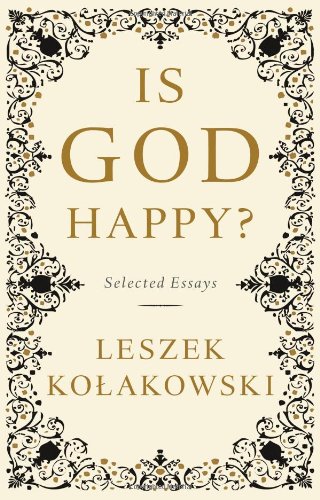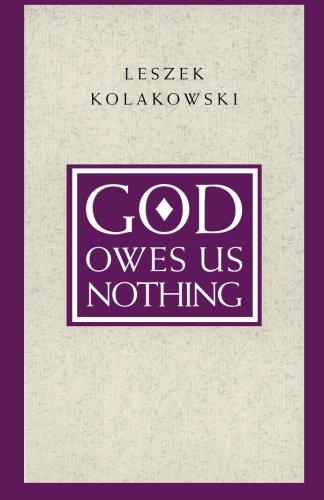If you looking for leszek kolakowski religion then you are right place. We are searching for the best leszek kolakowski religion on the market and analyze these products to provide you the best choice.
Reviews
1. Husserl Search For Certitude
2. Bergson
Feature
Used Book in Good ConditionDescription
Kolakowski shows how Henri Bergson sought to reconcile Darwins theory with his own beliefs about the nature of the universe. Bergson believed that time could be thought of in two different ways: as an abstract measuring device used for practical purposes, or as dure, the "real" time we actually experience. He also held that all matter is propelled by an internal lan vital, or life-drive, and that the life of the universe is constantly creative and unpredictable. On the basis of these ideas he constructed a system of thought that embraced his views on memory, matter, consciousness, movement, religious morality, and the nature of laughter. His pantheistic and dynamic vision of the universe, which emerged at a time of crisis in Western intellectual life, was symptomatic of the struggle between a rigid scientific determinism and the Christian tradition of a divine creation.3. The Presence of Myth
Feature
Great product!Description
With The Presence of Myth, Kolakowski demonstrates that no matter how hard man strives for purely rational thought, there has always been-and always will be-a reservoir of mythical images that lend "being" and "consciousness" a specifically human meaning.
"Kolakowski undertakes a philosophy of culture which extends to all realms of human intercourseintellectual, artistic, scientific, and emotional. . . . [His] book has real significance for today, and may well become a classic in the philosophy of culture."Anglican Theological Review
4. Is God Happy?: Selected Essays
Description
Kolakowskis extraordinary empathy, humor, and erudition are on full display in Is God Happy?, the first collection of his work to be published since his death in 2009. Accessible and wide ranging, these essaysmany of them translated into English for the first timetestify to the remarkable scope of Kolakowskis work. From a provocative and deeply felt critique of Marxist ideology to the witty and self-effacing In Praise of Unpunctuality to a rigorous analysis of Erasmus model of Christianity and the future of religion, these essays distill Kolakowskis lifelong engagement with the eternal problems of philosophy and some of the most vital questions of our age.
5. Religion: If There Is No God-- : On God, the Devil, Sin, and Other Worries of the So-Called Philosophy of Religion
Feature
Used Book in Good ConditionDescription
Leszek Kolakowski discusses, in a highly original way, the arguments for and against the existence of God as they have been conducted through the ages. He examines the critiques of religious belief, from the Epicureans through Nietzsche to contemporary anthropological inquiry, the assumptions that underlie them, and the counter-arguments of such apologists as Descartes, Leibniz, and Pascal.His exploration of the philosophy of religion covers the historical discussions of the nature and existence of evil, the importance of the concepts of failure and eternity to the religious impulse, the relationship between skepticism and mysticism, and the place of reason, understanding, and in models of religious thought. He examines why people, throughout known history, have cherished the idea of eternity and existence after death, and why this hope has been dependent on the worship of an eternal reality. He confronts the problems of meaning in religious language.
6. Religion: If there is no God... on God, the Devil, Sin and Other Worries of the so-called Philosophy of Religion (Masterguides)
Description
Hardcover, Oxford University Press, 1982, 235 pages. Green cloth with gold type on spine.7. God Owes Us Nothing: A Brief Remark on Pascal's Religion and on the Spirit of Jansenism
Feature
God Owes Us Nothing A Brief Remark on Pascal s Religion and on the Spirit of JansenismDescription
"Several books a year wrestle with that hoary conundrum, but few so dazzlingly as the Polish philosopher's latest."Carlin Romano, Washington Post Book World
"Kolakowski's fascinating book and its debatable thesis raise intriguing historical and theological questions well worth pursuing."Stephen J. Duffy, Theological Studies
"Kolakowski's elegant meditation is a masterpiece of cultural and religious criticism."Henry Carrigan, Cleveland Plain Dealer
8. God Owes Us Nothing: A Brief Remark on Pascal's Religion and on the Spirit of Jansenism by Leszek Kolakowski (1998-05-22)
Description
New copy. Fast shipping. Will be shipped from US.9. Religion (Masterguides)
10. Lire Kolakowski: La question de l'homme, de la religion et de l'Eglise (French Edition)
Description
Hard to find book11. Die Erkennbarkeit Gottes: Fundamentaltheologische Studien zu Leszek Koakowski (Forum Fundamentaltheologie) (German Edition)
Description
Leszek Kolakowski (1927-2009) spielte in der Philosophie Polens eine bedeutende Rolle. In Deutschland ist er hingegen fast ausschlielich als Marxist bekannt, der im Jahr 1965 einen Essay schrieb, der Jesus in einen auerchristlichen Kontext setzte. Kolakowskis Anschauungen vernderten sich im Laufe seines Lebens jedoch stark: Seine Phase als orthodoxer Marxist und scharfer Kritiker Gottes whrte nur von 1949 bis 1955 und wandelte sich im Laufe der folgenden Jahre allmhlich, bis 1965 ein scharfer Wendepunkt in seinem Denken seine Zuwendung zu Gott und zur Religion markiert. Die Arbeit zeigt diesen anderen Kolakowski, den Gott-Denker, fr den nur Gott der menschlichen Kultur und dem Leben des einzelnen Menschen Sinn gibt. Kolakowski stellte die wichtigen Fragen der Menschheit nach Religion, Gott und den Grundlagen der menschlichen Kultur Themen, die auch im Zentrum der Fundamentaltheologie stehen. Bisher wurden seine Ansichten allerdings nur im philosophischen Kontext erforscht. Diese Arbeit bringt die religisen Ansichten Kolakowskis in einen theologischen Dialog ein und gibt zugleich entsprechende Impulse und Ausgangspunkte fr die weitere theologische Forschung.12. Leszek Koakowski in Memoriam (Towards a Universal Civilization)

















